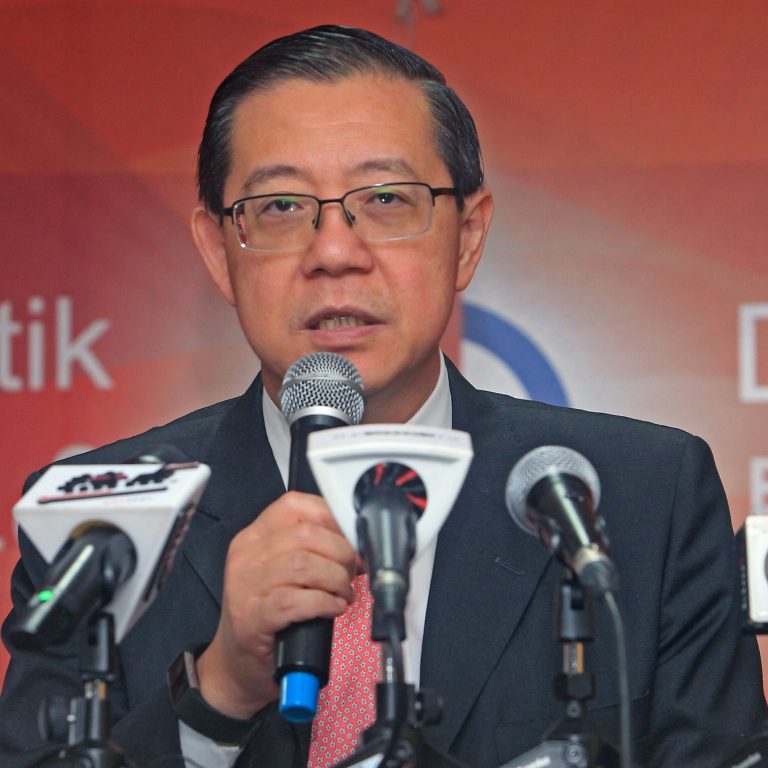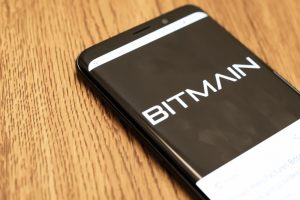
This story about a rejected government offer was written by Tomas Forgac, friend of Bitcoin.com, early Bitcoin investor and entrepreneur, now focusing on Bitcoin Cash adoption and growth.
***
An unnamed pro-crypto government recently gave Bitcoin.com an unsolicited offer to finance the expansion of operations. While we are grateful for the trust given to us and the bitcoin cash community, we feel we must explain why we would never accept such offer. We also hope our decision inspires others in the ecosystem to reject government handouts.
Also read: US State Takes Action Against Crypto Operation Imitating a Bank

There is a moral and economic dimension of our decision. The majority of our colleagues, including our CEO, consider taxation aggressive redistribution of honestly earned income: a form of theft. It would thus be unacceptable for us to take taxpayer money through a process we recognize as unjust.
While most people have differing opinions on taxation, hardly anyone considers it appropriate for lower and middle-class folks to invest in a highly risky enterprise. Furthermore, why should the existing financial institutions be forced subsidize their potential competition via a corporate tax? They would never wittingly do such a thing; it would be suicidal. But this is the effect of taxation on the population and businesses.
The Broken Window Fallacy
Government officials have no skin in the game when making investment decisions. Unlike angel investors, it is not their money at stake, and unlike VCs who have to compete for the financing of their funds, governments don’t compete with anyone.
Governments expropriate wealth and redistribute it. Officials and bureaucrats have no incentive to make the right decision. It should suffice to compare the success of startup scene in countries with very little to no support (US, UK, Israel or Scandinavia) to those where a government is heavily involved and “supportive” (EU, Singapore).
Seen Versus Unseen
One of the most important concepts in economics was explained by Frédéric Bastiat in 1848 and popularized by Henry Hazlitt a century later. They expressed this idea as the “disconnect between what is seen and what is unseen.” Bastiat used this idea to dismantle the broken window fallacy: that when a child throws a stone in a merchant’s window, it helps the economy because the merchant needs to hire a window maker.
“This destruction,” says some pseudo-economists, “trickles down to the whole economy and provides jobs to the unemployed.” The fallacy attempts to convince people that wars spur economic activity; that for example, World War II ultimately saved the US from the Great Depression.
Destruction Cannot Lead to Prosperity

Anyone with common sense, however, intuitively knows there is something wrong with this line of reasoning. How can destruction lead to prosperity? It cannot.
Bastiat explained there is a difference between what is obvious and what is unseen. It is obvious the window was fixed and the window maker made money as a result. However, most people miss that the merchant made expenditures, which he would have originally reserved for other purposes.
Perhaps he wanted a new pair of pants made, but because of the incident, he had to forgo those. Therefore, the tailor loses money and society fails to accumulate greater wealth. In the case of the broken window, the economy merely replaced the window. In the latter, unseen case, the merchant would possess an intact window and new pair of pants. Overall, everyone would have been wealthier.
The same goes with the war economy. On paper, it grows rapidly because of government expenditure, but it doesn’t produce stuff people want. That makes the society poorer, not wealthier.
Broken Window Fallacy in the Startup World

This concept applies to governments making decisions on investments in startups as well. Even if some startups become successful and profitable, it is impossible to say which investments had to be forgone.
This is the natural result of money being stolen from people and businesses through the process of taxation. In reality, these folks would have made the decisions on where their money goes, not government agencies. Some of them might choose consumption, some might choose more profitable investments, and some might choose what they feel is a more socially conscious investment.
It should not be up to government to make judgement calls on investment decisions. This is an insane proposition, because government has no skin in the game. It is unlikely they would make a good decision. The incentives are not there, so businesses and investors would make better decisions on average.
Rejecting Government Handouts on Principle
The author of this article had a similar experience with his first startup attempt in Singapore. Because it was 3D-printing related, he received multiple unsolicited offers for state financing and turned them all down because of the aforementioned reasons.
With that said, we are not naive. We do not believe because we refused the money, it will be returned to the taxpayers or spent in a better way. No, we rejected it on principle. We turned it down because it is stolen money, and we want to educate the public about the unintended consequences of such programs.
Bastiat would be proud.
What do you think about rejecting government handouts on principle? Did the author and his company make the right decision?
Images courtesy of Shutterstock
OP-ed disclaimer: This is an Op-ed article. The opinions expressed in this article are the author’s own. Bitcoin.com does not endorse nor support views, opinions or conclusions drawn in this post. Bitcoin.com is not responsible for or liable for any content, accuracy or quality within the Op-ed article. Readers should do their own due diligence before taking any actions related to the content. Bitcoin.com is not responsible, directly or indirectly, for any damage or loss caused or alleged to be caused by or in connection with the use of or reliance on any information in this Op-ed article.
The post Why We Rejected an Offer from Government to Help Expand Our Company appeared first on Bitcoin News.
from Bitcoin News https://ift.tt/2PX08mM Why We Rejected an Offer from Government to Help Expand Our Company


 Like many exchanges, Binance has sought to reduce its exposure to tether (USDT) in recent months by introducing a range of alternative stablecoins. Binance has now moved to further distance itself from tether by removing it as the reference BTC/USD pair on the platform. In its place will come “USDⓈ.” This is not a new stablecoin, but rather the name Binance has assigned to the combined stablecoins it will use to derive its BTC/USD price.
Like many exchanges, Binance has sought to reduce its exposure to tether (USDT) in recent months by introducing a range of alternative stablecoins. Binance has now moved to further distance itself from tether by removing it as the reference BTC/USD pair on the platform. In its place will come “USDⓈ.” This is not a new stablecoin, but rather the name Binance has assigned to the combined stablecoins it will use to derive its BTC/USD price.








 Local media outlets have reported that Sweden’s data centers expect a wave of interest from miners leaving Norway, following reports that the government will repeal electricity concessions. As of January 2019, miners operating in Norway will have to pay the equivalent of $0.019 per kilowatt-hour (kWh), up from approximately $0.00056/kWh under the current subsidies. By contrast, Swedish data centers
Local media outlets have reported that Sweden’s data centers expect a wave of interest from miners leaving Norway, following reports that the government will repeal electricity concessions. As of January 2019, miners operating in Norway will have to pay the equivalent of $0.019 per kilowatt-hour (kWh), up from approximately $0.00056/kWh under the current subsidies. By contrast, Swedish data centers  The Swedish municipality of Boden currently hosts about 10 cryptocurrency mining companies. But Erik Svensson, director of the Boden Business Agency, predicts that the number of miners in the locality will soon grow as companies begin to leave Norway.
The Swedish municipality of Boden currently hosts about 10 cryptocurrency mining companies. But Erik Svensson, director of the Boden Business Agency, predicts that the number of miners in the locality will soon grow as companies begin to leave Norway. Bitmain is one of a number of mining companies that have had their operations impacted by the Norwegian government’s decision to cancel the subsidies.
Bitmain is one of a number of mining companies that have had their operations impacted by the Norwegian government’s decision to cancel the subsidies.
 The Cagayan Economic Zone Authority (Ceza) announced last week its plan to attract companies from Japan, Korea, and Australia to its
The Cagayan Economic Zone Authority (Ceza) announced last week its plan to attract companies from Japan, Korea, and Australia to its  Ceza has partnered with one of its principal Offshore Virtual Currency Exchange (Ovce) licensees, Rare Earth Asia Technologies Corp., to achieve this expansion. The agreement gives the tech company the exclusive right to be Ceza’s sole marketing and technical partner to promote Ceza in the aforementioned three countries, the authority explained.
Ceza has partnered with one of its principal Offshore Virtual Currency Exchange (Ovce) licensees, Rare Earth Asia Technologies Corp., to achieve this expansion. The agreement gives the tech company the exclusive right to be Ceza’s sole marketing and technical partner to promote Ceza in the aforementioned three countries, the authority explained. On Nov. 23, the Philippine News Agency reported that Ceza’s revenue from January to September reached 521 million pesos (~$10 million), doubling from 224.55 million pesos earned for the full year of 2017. Ceza CEO and Administrator Raul Lambino explained that Ceza’s venture into cryptocurrency and blockchain technology has boosted its revenue this year, adding that “Growth in the economic zone will be investment-driven.” Furthermore, about 50,000 jobs will be created, the news outlet noted.
On Nov. 23, the Philippine News Agency reported that Ceza’s revenue from January to September reached 521 million pesos (~$10 million), doubling from 224.55 million pesos earned for the full year of 2017. Ceza CEO and Administrator Raul Lambino explained that Ceza’s venture into cryptocurrency and blockchain technology has boosted its revenue this year, adding that “Growth in the economic zone will be investment-driven.” Furthermore, about 50,000 jobs will be created, the news outlet noted. The Manila Times reported on Nov. 22 that Ceza is cracking down on cryptocurrency firms operating in the zone without authorization. Ceza is collaborating with the National Bureau of Investigation and the Criminal Investigation and Detection Group of the Philippine National Police to go after unlicensed crypto businesses.
The Manila Times reported on Nov. 22 that Ceza is cracking down on cryptocurrency firms operating in the zone without authorization. Ceza is collaborating with the National Bureau of Investigation and the Criminal Investigation and Detection Group of the Philippine National Police to go after unlicensed crypto businesses.
 All bitcoin transactions are equal in the eyes of miners. Provided there’s a sufficient fee attached, it makes no difference to them who sender or recipient may be or how many BTC are transferred. It’s only once hindsight and context are applied that significance can be attached to a transaction like an opcode. With over 360 million BTC transactions to date, the following article details just 0.0000022 percent. But within this slender selection lurks a trove of Bitcoin history. There’s magic and mystery encoded in the blockchain if you know where to look.
All bitcoin transactions are equal in the eyes of miners. Provided there’s a sufficient fee attached, it makes no difference to them who sender or recipient may be or how many BTC are transferred. It’s only once hindsight and context are applied that significance can be attached to a transaction like an opcode. With over 360 million BTC transactions to date, the following article details just 0.0000022 percent. But within this slender selection lurks a trove of Bitcoin history. There’s magic and mystery encoded in the blockchain if you know where to look.
 When most whales wish to show that they own a particular bitcoin address, they’ll send a microtransaction from it. A few satoshis is all it takes to demonstrate proof of funds. Mt. Gox CEO Mark Karpeles had a different idea though when pressed to prove the funds under his custody, sending a massive tranche of BTC from one wallet he controlled to another in a show of strength.
When most whales wish to show that they own a particular bitcoin address, they’ll send a microtransaction from it. A few satoshis is all it takes to demonstrate proof of funds. Mt. Gox CEO Mark Karpeles had a different idea though when pressed to prove the funds under his custody, sending a massive tranche of BTC from one wallet he controlled to another in a show of strength. “Hi, I entered a transaction fee that was way too high…is there anyway that I can stop the transaction from confirming?”
“Hi, I entered a transaction fee that was way too high…is there anyway that I can stop the transaction from confirming?” 





 Eligible taxes are 911 wireless, cigarette / other tobacco products, commercial activity, consumer’s use, direct pay permit, financial institution, interest on lawyers trust accounts, international fuel tax agreement, kilowatt hour, motor vehicle fuel, municipal net profits, municipal tax electric light & telephone, natural gas distribution, non-resident motor vehicle sales tax, pass-thru entity tax, petroleum activity, premium insurance tax, public utilities tax, sales tax, seller’s use tax, severance tax, streamlined sales tax, and withholding tax.
Eligible taxes are 911 wireless, cigarette / other tobacco products, commercial activity, consumer’s use, direct pay permit, financial institution, interest on lawyers trust accounts, international fuel tax agreement, kilowatt hour, motor vehicle fuel, municipal net profits, municipal tax electric light & telephone, natural gas distribution, non-resident motor vehicle sales tax, pass-thru entity tax, petroleum activity, premium insurance tax, public utilities tax, sales tax, seller’s use tax, severance tax, streamlined sales tax, and withholding tax.
 Regarding which cryptocurrencies are accepted, the Ohiocrypto website clarifies, “Taxpayers can currently pay their taxes with Ohiocrypto.com in bitcoin,” adding “the Treasurer’s office looks forward to adding more cryptocurrencies in the future.” The state will not be keeping any bitcoins, however. The Treasury’s Office emphasizes:
Regarding which cryptocurrencies are accepted, the Ohiocrypto website clarifies, “Taxpayers can currently pay their taxes with Ohiocrypto.com in bitcoin,” adding “the Treasurer’s office looks forward to adding more cryptocurrencies in the future.” The state will not be keeping any bitcoins, however. The Treasury’s Office emphasizes: In general, to pay taxes using either BTC or BCH, taxpayers need to use compatible wallets which both the Ohiocrypto website and Bitpay have listed. Compatible wallets include Bitpay’s own wallet, Copay wallet, Btc.com wallet, Mycelium wallet, Edge wallet (formerly Airbitz), Electrum wallet, Bitcoin Core wallet, Bitcoin.com wallet, BRD wallet (breadwallet), and Electron Cash Wallet.
In general, to pay taxes using either BTC or BCH, taxpayers need to use compatible wallets which both the Ohiocrypto website and Bitpay have listed. Compatible wallets include Bitpay’s own wallet, Copay wallet, Btc.com wallet, Mycelium wallet, Edge wallet (formerly Airbitz), Electrum wallet, Bitcoin Core wallet, Bitcoin.com wallet, BRD wallet (breadwallet), and Electron Cash Wallet.
 Invault, a Shanghai-based startup, has secured a new trust license from the Hong Kong financial regulator to act as a digital custodian in the Chinese special administrative region. It plans to begin offering automated cryptocurrency custodial services in December. It is also said to be in talks with a couple of “mid-sized” insurance companies to possibly add their coverage to its services.
Invault, a Shanghai-based startup, has secured a new trust license from the Hong Kong financial regulator to act as a digital custodian in the Chinese special administrative region. It plans to begin offering automated cryptocurrency custodial services in December. It is also said to be in talks with a couple of “mid-sized” insurance companies to possibly add their coverage to its services. Invault is backed by venture capital fund Matrix Partners China, which contributed $5.85 million in seed funding earlier this year. The startup reportedly already has a staff of over 40 in Shanghai and holds 1 million ETH under custody for mainland Chinese clients.
Invault is backed by venture capital fund Matrix Partners China, which contributed $5.85 million in seed funding earlier this year. The startup reportedly already has a staff of over 40 in Shanghai and holds 1 million ETH under custody for mainland Chinese clients.